The Brain
The brain is the control center of the body and is responsible for processing information from the senses, initiating motor functions, and controlling higher cognitive functions such as thinking, memory, and emotions.
Brain Structure
The brain is made up of several key structures:
- Cerebrum: The largest part of the brain responsible for thinking, voluntary movements, and processing sensory information.
- Cerebellum: Located at the back of the brain, it is responsible for coordination and balance.
- Brainstem: Connects the brain to the spinal cord and controls basic functions such as breathing and heart rate.
- Thalamus: Acts as a relay station for sensory information.
- Hypothalamus: Regulates body temperature, hunger, thirst, and other basic survival functions.
Brain Function
The brain carries out various functions, including:
- Sensory Processing: The brain receives and interprets information from the senses.
- Motor Control: It initiates and coordinates movements of the body.
- Memory and Learning: The brain stores and retrieves information, as well as processes new knowledge and experiences.
- Emotional Regulation: It influences emotion, mood, and stress responses.
- Homeostasis: The brain maintains internal balance and regulates physiological processes.
Brain Health
It's important to take care of the brain to maintain overall health. This includes:
- Healthy Diet: Consuming foods rich in nutrients that support brain function, such as omega-3 fatty acids and antioxidants.
- Physical Activity: Engaging in regular exercise to promote blood flow and brain health.
- Mental Stimulation: Challenging the brain with puzzles, reading, and learning new skills to maintain cognitive function.
- Stress Management: Practicing relaxation techniques to reduce chronic stress, which can negatively impact the brain.
Study Tips
When studying the brain, consider the following tips:
- Use diagrams and visual aids to understand the brain's anatomy and function.
- Break down the information into smaller sections for easier comprehension.
- Make use of mnemonic devices to remember different brain structures and their functions.
- Review and practice regularly to reinforce your understanding of the brain.
◂Science Worksheets and Study Guides Sixth Grade. Magnetism
Study Guide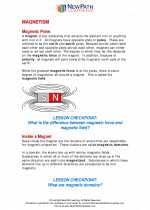 Magnetism
Magnetism  Activity Lesson
Activity Lesson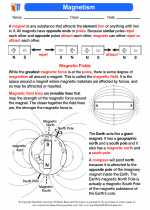 Magnetism
Magnetism  Worksheet/Answer key
Worksheet/Answer key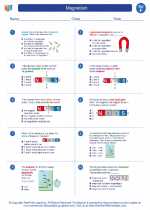 Magnetism
Magnetism  Worksheet/Answer key
Worksheet/Answer key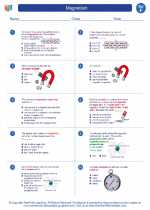 Magnetism
Magnetism  Worksheet/Answer key
Worksheet/Answer key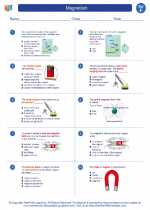 Magnetism
Magnetism  Worksheet/Answer key
Worksheet/Answer key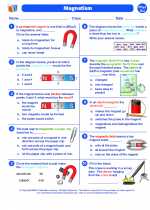 Magnetism
Magnetism  Vocabulary/Answer key
Vocabulary/Answer key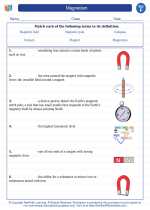 Magnetism
Magnetism 

 Activity Lesson
Activity Lesson
 Worksheet/Answer key
Worksheet/Answer key
 Worksheet/Answer key
Worksheet/Answer key
 Worksheet/Answer key
Worksheet/Answer key
 Worksheet/Answer key
Worksheet/Answer key
 Vocabulary/Answer key
Vocabulary/Answer key

The resources above cover the following skills:
EARTH AND SPACE SCIENCE
Earth’s Systems
Develop and use models of Earth’s interior composition to illustrate the resulting magnetic field (e.g., magnetic poles) and to explain its measureable effects (e.g., protection from cosmic radiation).